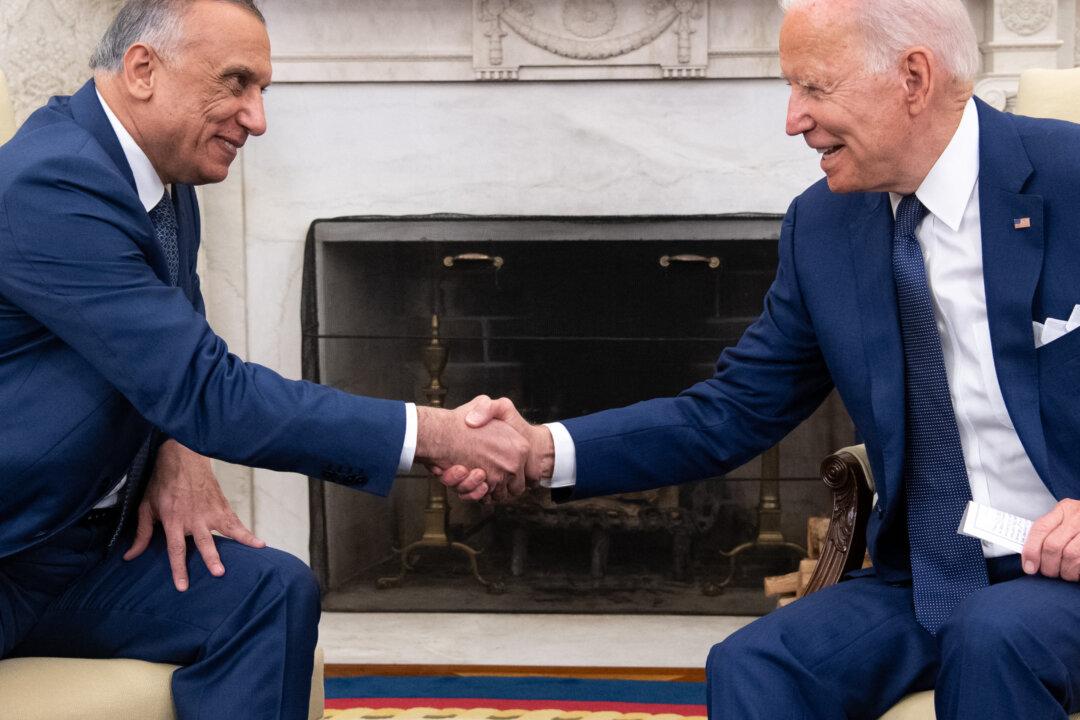President Joe Biden’s recent announcement that the United States will end its “combat” mission in Iraq this year was likely a symbolic gesture meant to support an embattled Iraqi prime minister ahead of October’s elections, according to experts familiar with the situation.
Biden’s announcement came on July 26 during Iraqi Prime Minister Mustafa al-Kadhimi’s visit to the White House.




